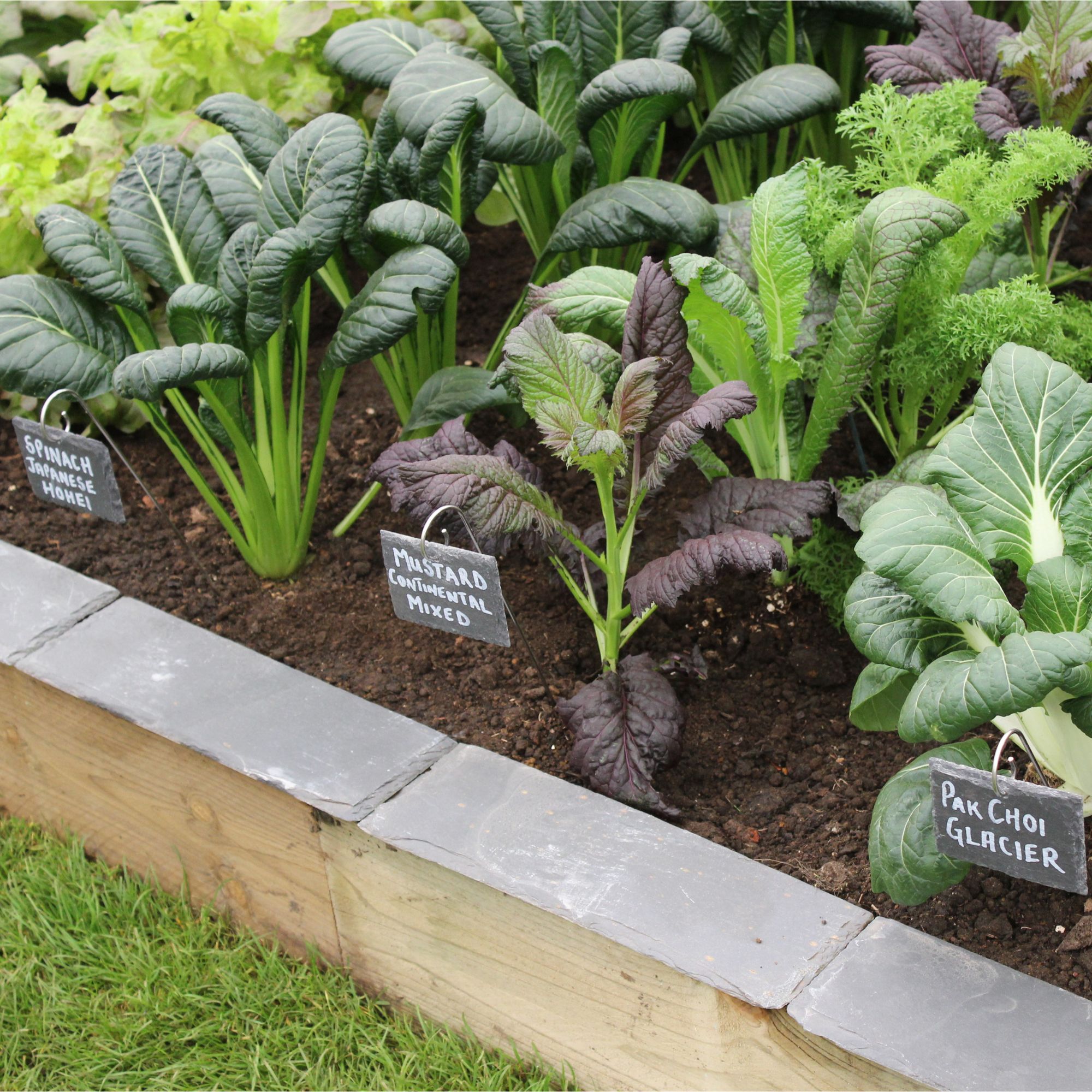
Out of all the winter garden questions, there's one we've heard a lot this month: should I cover raised beds in winter?
If you've been learning how to get your garden ready for winter, you're probably familiar with the benefits of covering raised beds in winter. There's a lot of buzz about it being a great way to prepare your soil for winter and spring, but is the task essential?
We've checked in with garden experts to evaluate the importance of covering raised beds in winter.
Should I cover raised beds in winter?
Raised beds can play host to a number of vegetables and flowering plants. They're versatile, too – you can fill a raised garden bed with whatever soil it needs to thrive, from traditional multi-purpose compost to an ericaceous mix. You can even learn how to build a raised garden bed if you're up for a DIY project.
But once the growing season is over, it can be tricky to know what to do with them.
That brings us back to the all-important question: Should I cover raised beds in winter?
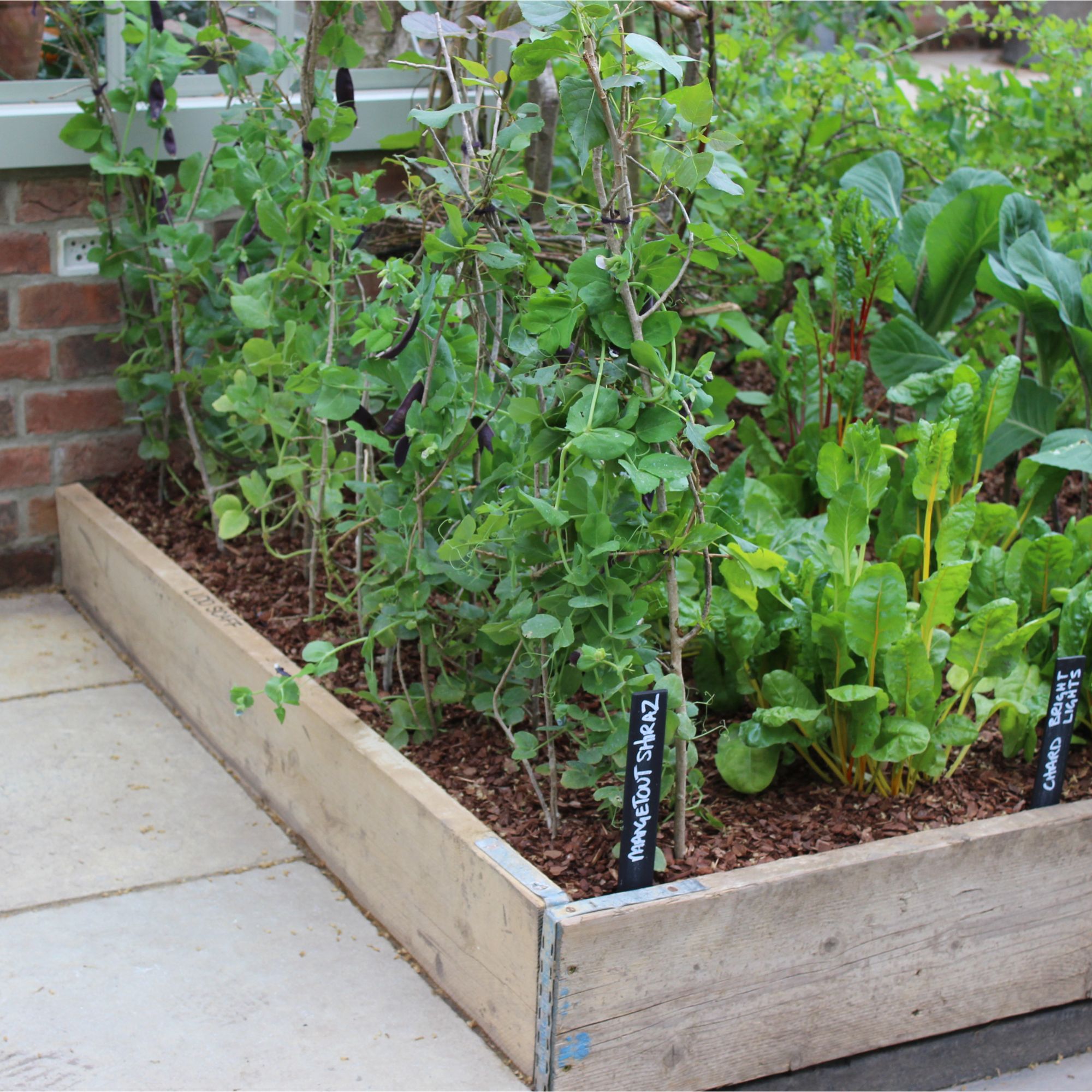
Well, learning how to prepare raised beds in winter is relatively straightforward – and garden experts are united in the view that covering raised beds in winter is one of the most crucial jobs to do in the garden in November and the coming weeks.
'There are steps you can take to protect your plants from harsh weather, while also setting your plants in good stead for next year,' says Nigel Lawton, Dobbies’ plant buyer. 'Frost protection is one of the most important parts of your winter gardening checklist.'
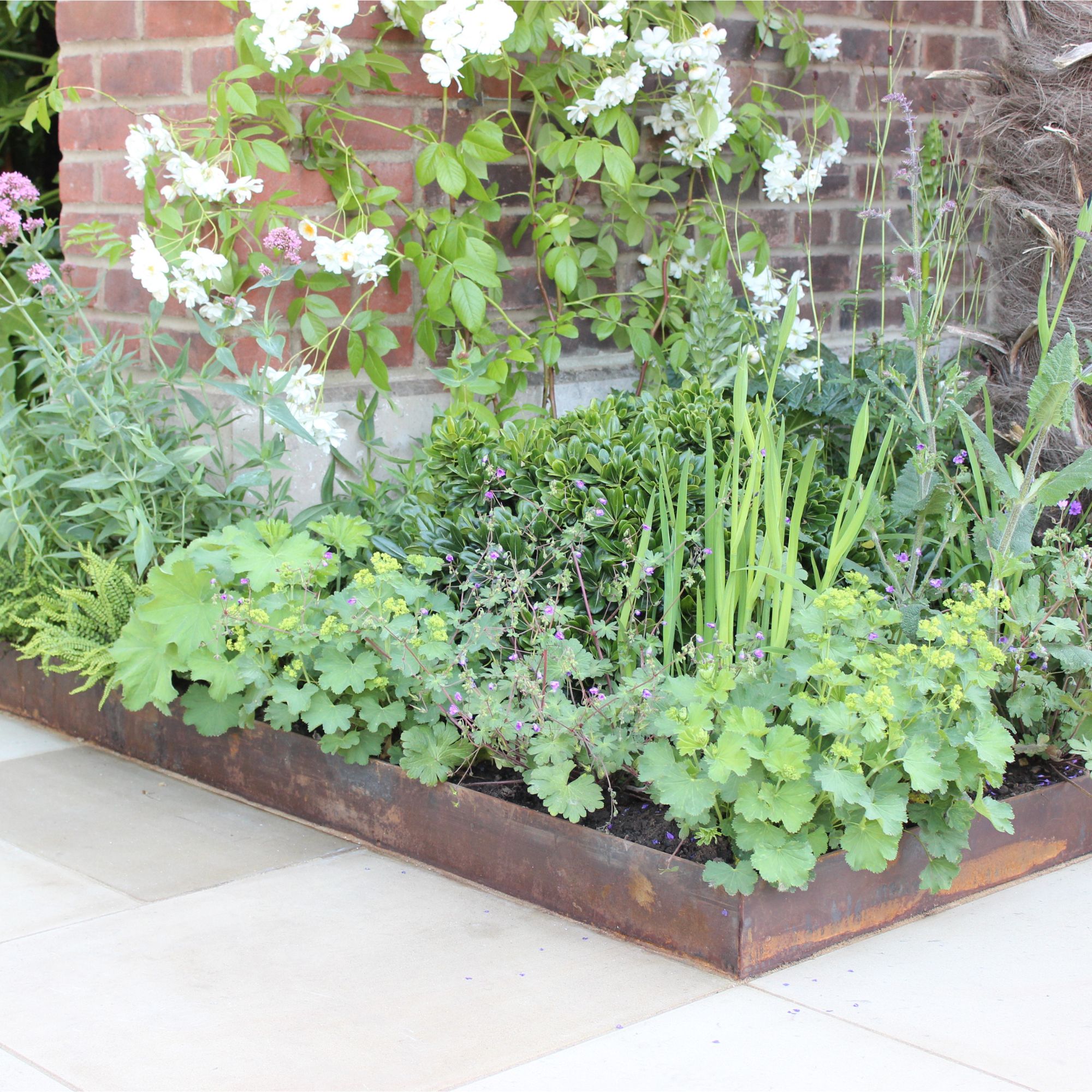
Benefits of covering raised beds in winter
Whether your raised beds are empty or filled with winter-growing vegetables and perennials, there are a few ways you can cover them up over the winter. One of the most common techniques is mulching, which offers a number of benefits.
'Mulching beds and borders insulates the soil, allows plant roots to retain warmth and moisture, and offers protection from frost damage,' explains gardening expert and author Sarah Raven.
If you're wondering how to protect plants with mulch, there are a few options at your disposal: well-rotted manure, compost, straw or bark are all popular mediums.
What you'll need
Chi Chi Dunford, head kitchen gardener at Sculpture by the Lakes, is also a strong advocate for covering raised beds in winter.
'Try not to leave soil uncovered without plants or organic matter as mulch,' she warns.
You could even sow green manures in empty raised beds to provide a layer of protection from the elements and enrich the soil.
'It’s good practice to grow winter hardy green manure plants over winter, or any winter hardy plants,' says Chi Chi.
'When spring comes, you can chop down the green manure and leave it on top of the soil to break down a month or two before planting. The worms and microorganisms will turn it into beautiful humus and nutrition to feed your plants.'
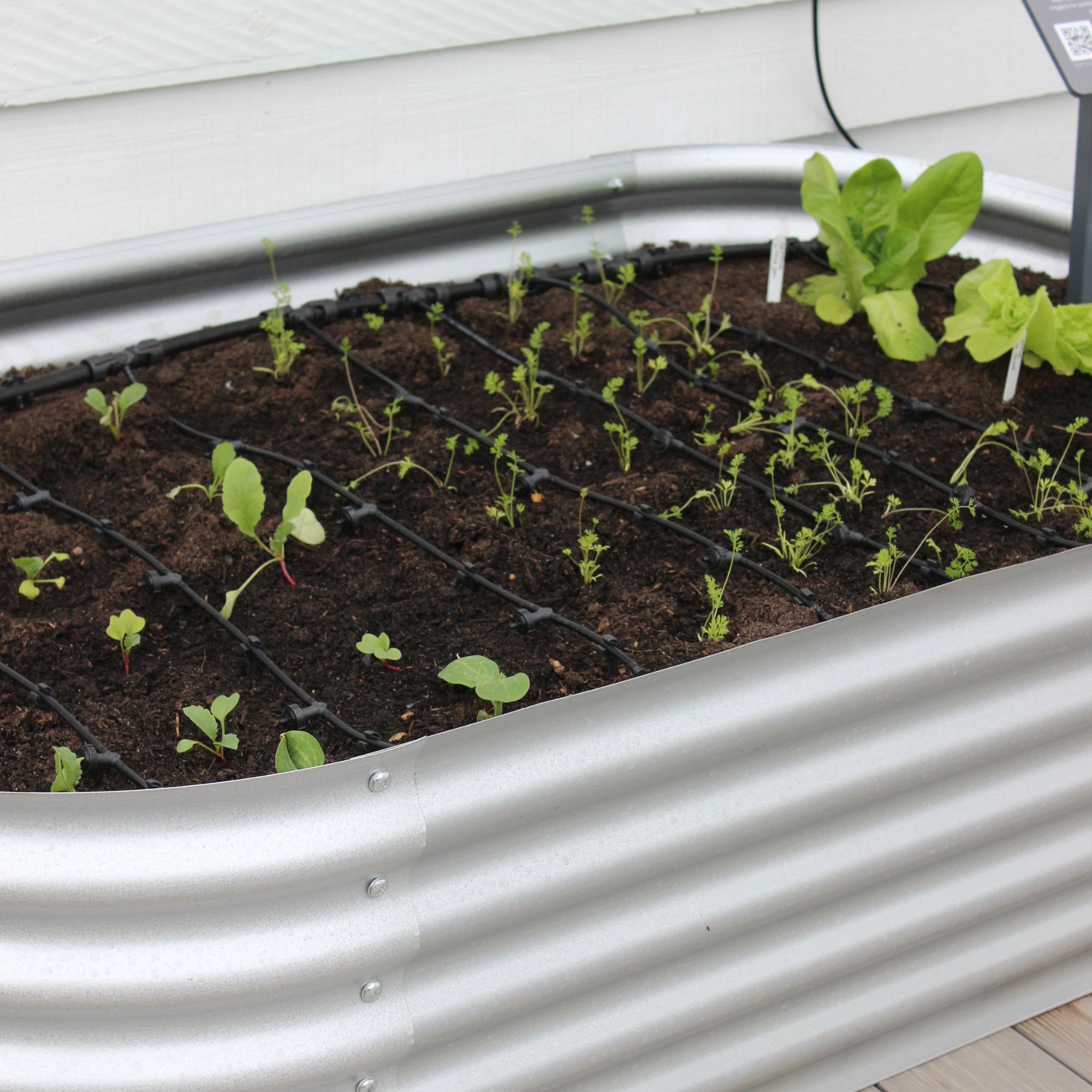
If you've missed the window to sow green manures, don't worry – there are plenty of other ways to cover raised beds over the winter.
'Just cover your beds with cardboard to compact the soil and prevent weeds from growing,' says Chi Chi.
That's right – covering raised beds in winter is a great way to cut down on weeds, too.
You could even use horticultural fleece to protect winter-growing plants. 'Covering raised beds in winter with a layer of fleece can be useful, especially if you are growing winter salads,' says Morris Hankinson, founder of Hopes Groves Nurseries.
Mulching also has insulating effects on the soil. 'If the beds are covered in fleece or a cloche, this will help the soil to be a little warmer in spring, ultimately extending the growing season,' Morris adds.
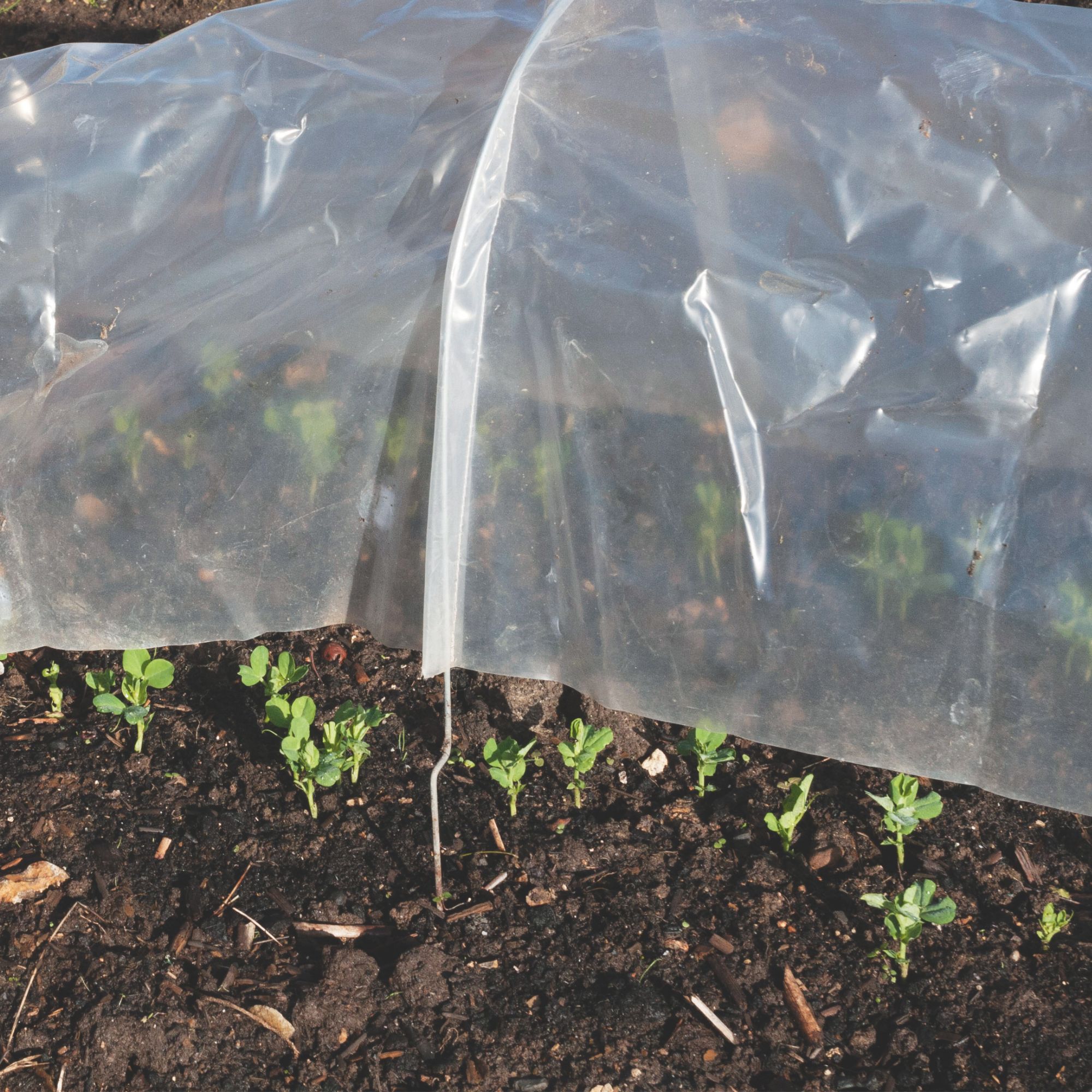
So, should I cover raised beds in winter?
Well, it certainly has a lot of benefits: fleece, cardboard, green manures and other mulches reduce soil erosion by protecting raised beds from the elements, enriching the soil ahead of the next growing season.
Plus, any plants that are set to stay in the beds over the winter can benefit from the additional protection. There's the bonus of soil insulation, too, for earlier sowings in the spring.
So, yes – we think covering raised beds in winter is the surest way to healthy plants and soil next year.
FAQs
Should I cover raised beds with plastic?
Plastic sheeting is another popular way of covering raised beds in winter, but does it work?
Well, it isn't the most eco-friendly option, but like other mulches, it'll reduce weed growth and insulate and protect the soil. However, straw, bark and other organic matter like compost or well-rotted manure are, of course, far more environmentally friendly. There's also the risk of waterlogging if you don't seal the plastic cover properly, as heavy rainfall can pool beneath the tarp.
How do I keep my raised garden bed warm?
If you're hoping to insulate your raised beds over the colder months, mulching is the technique to have on-side.
Compost, straw, horticultural fleece and cardboard are just some of the mediums you can use to cover your raised beds. They'll provide an insulating layer of protection from the winter weather, reducing soil erosion in the process.
What will you be covering your raised beds with this winter?







